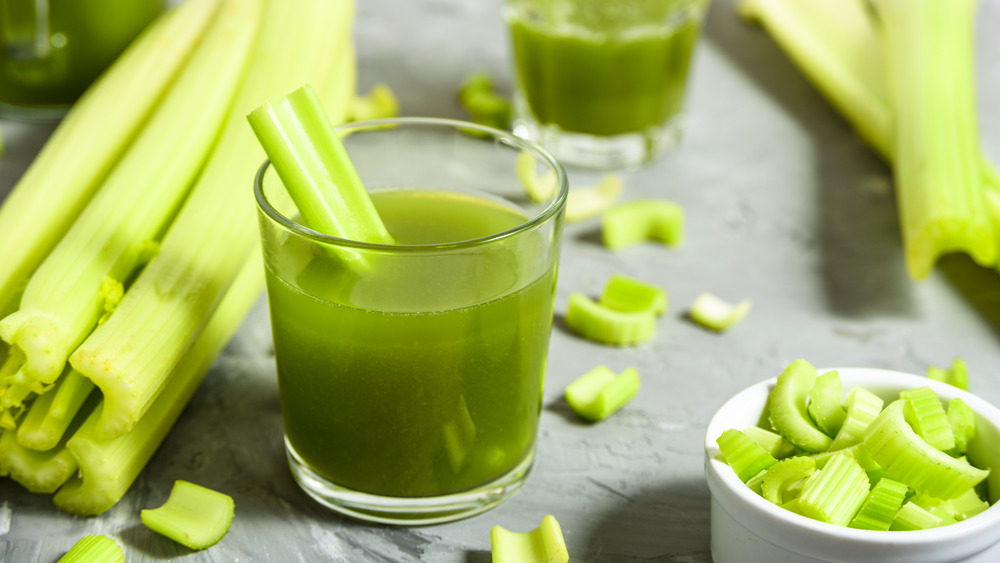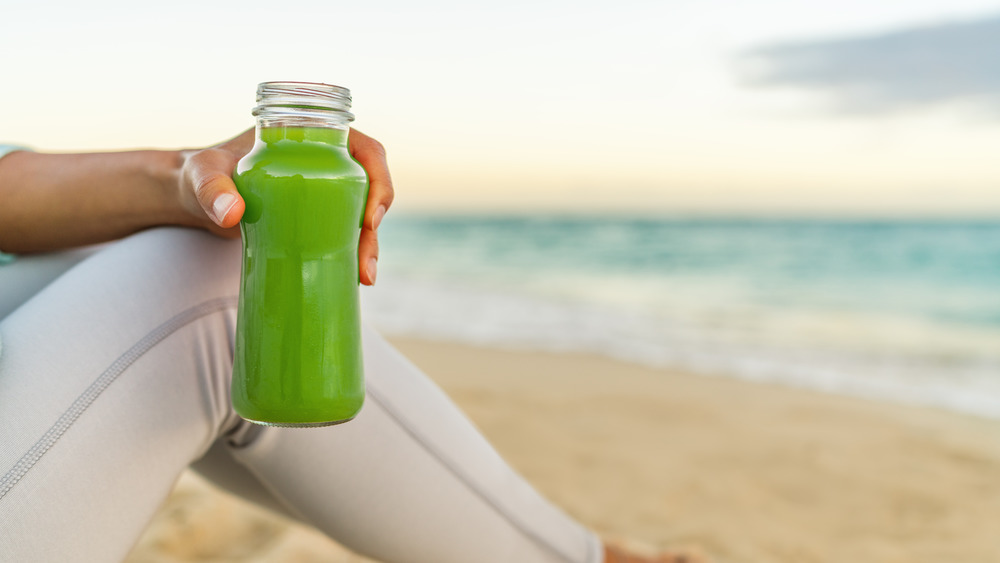What Makes Juice Cleanses So Concerning
There's something about cleansing and fasting which helps us feel lighter and more healthy, particularly if we've been indulging for an extended period of time. But before you hit the supermarket and shop for a for a juice fast or a juice cleanse in mind, there's something Dr. James Kelley, MD, Medical Science Liaison for L-Nutra, a nutrition company and creator of Fast Bar, wants you to know: that juice cleanses aren't as helpful as you think — in fact, they hardly help at all.
There are many of us who also think that juice cleanses are healthy, and they can improve our complexions, mental clarity, and even break unhealthy eating habits, but Dr. Kelley tells Mashed in an exclusive interview that people are actually in the dark when it comes to juice cleanses and what they can expect to achieve. "The most common misconception about juice cleanses is the idea that they promote 'detoxification,'" he says. "The reality is that in normal healthy people, the liver and kidneys, as well as the lungs and gut, will all work together to remove harmful substances or toxins that may have accumulated in the body. There is no evidence that drinking juices improves their function, or removes additional toxins above and beyond what a normal, healthy body would do on its' own."
Juice cleanses can carry health risks
Contrary to the popular belief that juice cleanses are healthy, Dr. Kelley says they can actually be dangerous. Health risks associated with juice cleanses include hypoglycemia or low blood sugar, dehydration and low blood pressure which can lead to loss of consciousness, as well as electrolyte imbalances. But that's not all. Long-term problems can arise, too, with juice cleanses.
Long-term effects of juice fasting can include loss of muscle, weakened bones, and heart arrhythmia or irregular heart beats. It's for these reasons that Dr. Kelley says there are those of us who should not even consider juice fasts. Even if the draw of a juice cleanse sounds healthy in theory, Dr. Kelley recommends that people with diabetes, heart problems, a history of eating disorders, women who are pregnant, and those who might suffer from a nutrient deficiency of any kind should stay away.
There are better ways to lose weight, according to Dr. Kelley
Dr. Kelley says there are better ways to lose holiday weight instead of resorting to the promising myths of a juice cleanse, even if these methods don't offer the instant fixes that juice cleanses supposedly do. "If your goal is to lose weight and promote healthy aging, consider 12:12 circadian or 16:8 intermittent fasting, or a five-day Fasting Mimicking Diet, which allows you to get many of the benefits of water-only fasting while still allowing you to eat," he says.
But if you're not one for set meal plans or specific parameters, Dr. Kelley explains there are more ways to stay focused on your health. "Simple changes to your regular diet can give tremendous benefits, such as increasing the amount of fruit and vegetables you eat daily, which can improve your overall health, help with maintaining hydration, and improve energy stores, too. Reducing processed foods and added sugars also may have a positive impact on your lifespan," he says. Best of all, these options don't have any exposure to the risks you'd possibly face with potentially dangerous fad diets or with either short or long-term juice fasting.


